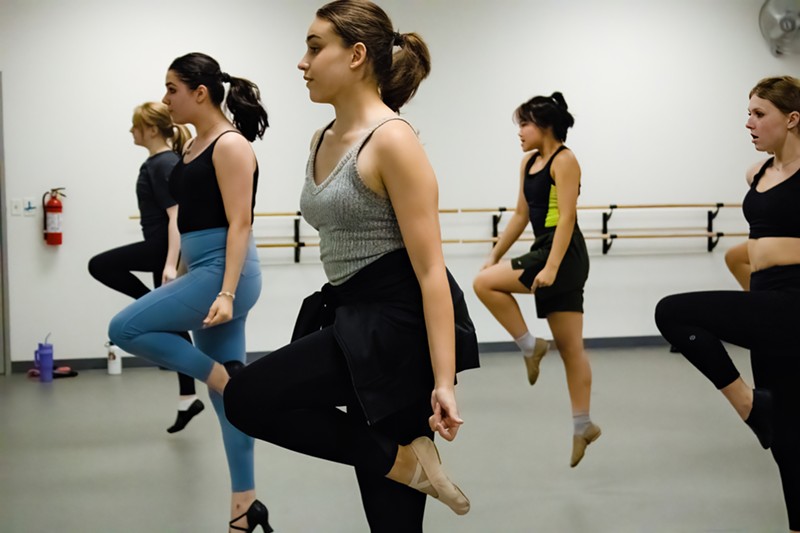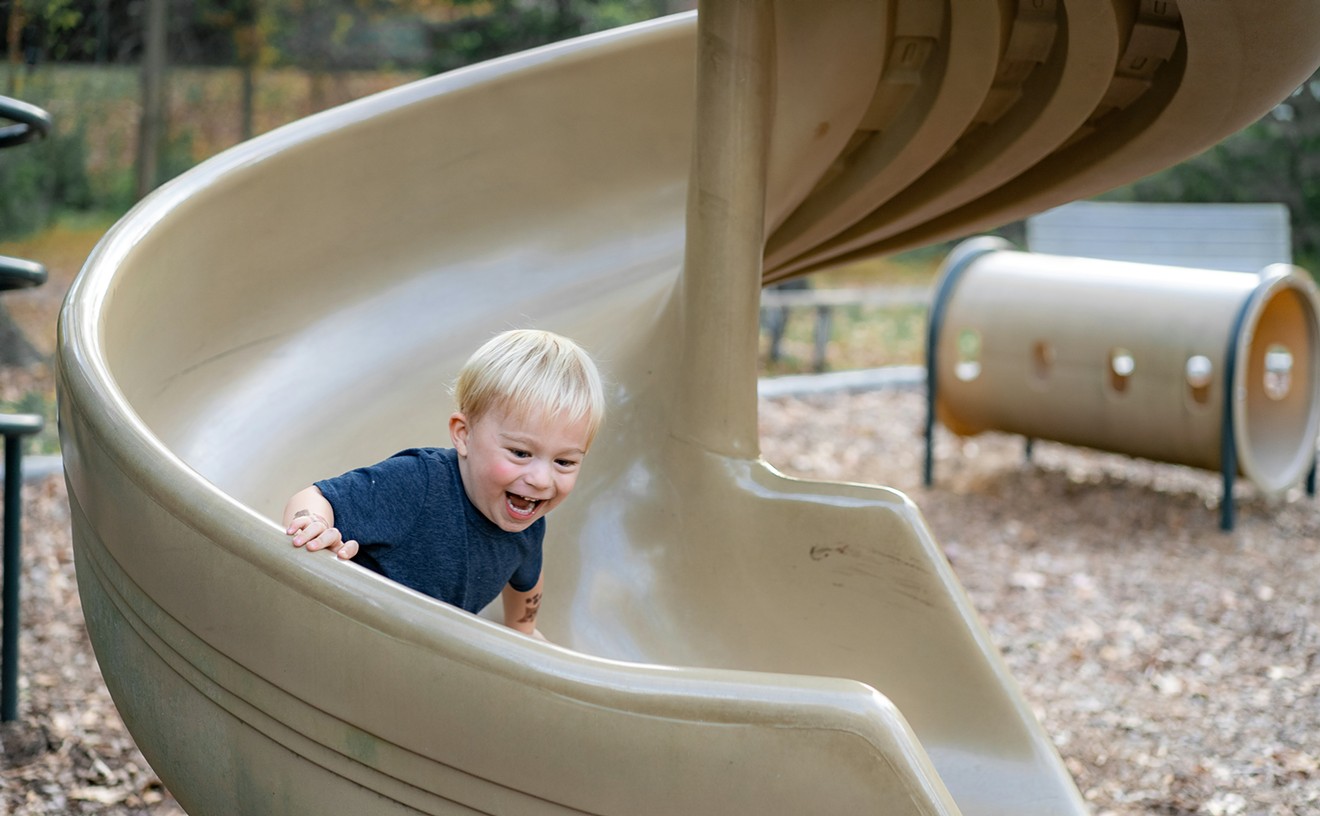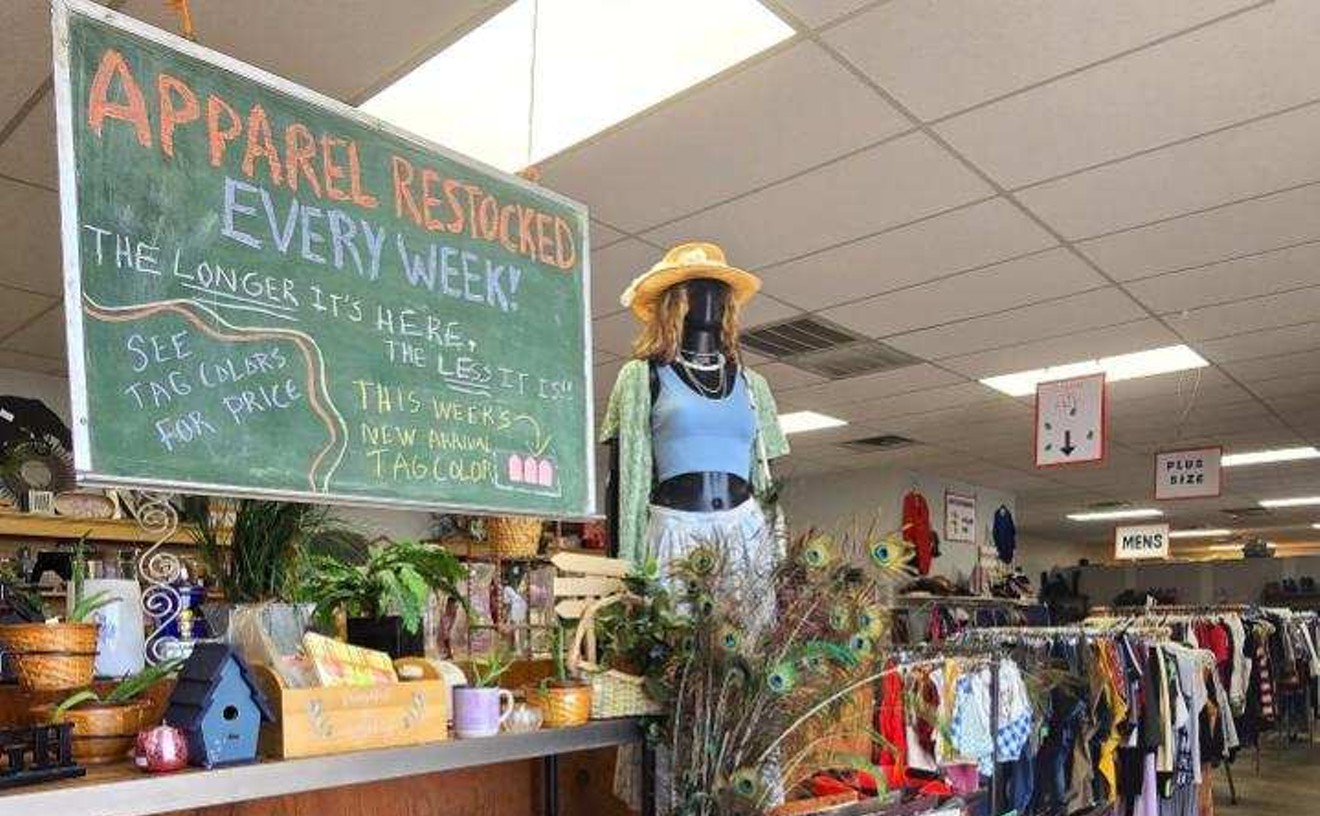"Rejection is a huge part of it," Carroll says. "That doesn't mean that it's easy and you're always going to have to change a lot more than other industries sometimes because you're going to do another show and start another one. Especially with this business, it's tricky because you can be rejected for being yourself, the way you look, the way you talk. It could be as simple as, 'You're too tall.'"
Rebel Theatrics, founded by Carroll and Lucas Atkins in 2021, recently implemented a new curriculum along with its arts programming to help students learn to weather a rejected audition or a career misstep, and how to take care of themselves at any stage of their career and their lives.
"We want to bring them advanced training to have a career in this wild industry, but what's not talked about as much is the mental health of an artist," Carroll says. "It's already hard enough being a teenager, but being a creator and have a career in the arts and can be really be demanding. The industry demands a lot of artists."
Carroll says she realized the importance of mental health in her students' lives and even her own life when she and her family faced a tragic and sudden loss.
"A few years ago, I lost my brother to suicide, and it's something my family was very unprepared for and something we didn't have any idea he was suffering from," she says. "I had a lot of students who started to come to me with very vulnerable things, and I knew I wasn't going to change my career but I wanted to provide a space where these conversations are going to be had and a student is faced to explore all of their feelings, all of their challenges, all of their wins and lows."
"It's already hard enough being a teenager, but being a creator and have a career in the arts and can be really be demanding. The industry demands a lot of artists." – Kellie Carroll
tweet this
Last fall, Rebel Theatrics held a weekend convention that provided artistic instruction and demonstration with a mental health awareness and practice program that adapted to students' needs. They decided to expand the program to the studio and schedule more conventions.
"Some of it is as simple as they are required to do so many self-care hours a week," Carroll says. "If you're training for eight hours a week, they need to be doing self-care eight hours a week. Some of it involves bringing in a healthcare professional to talk about self-esteem or self-confidence after an audition or if they have a performance. One of the things we want from Rebel is it a fluid company. It's going to ebb and flow with the students we have. It's never going to be a set model."
These programs and practices aren't about running from uncomfortable feelings. The goal is for young artists to learn how to face them with skills and confidence.
"The latter part of that is you're also going to get rejected and you'll never know why," Carroll says. "So unless you are confident in what you bring to the table and have set yourself up to love yourself in the face of rejection and figured out it's not just being prepared to hear no. It's being prepared to hear the no and try again."
Carroll says she feels she has an important duty beyond helping her students become better performers. She feels it's necessary to help her students become confident performers who are prepared for the rejections they will inevitably face, no matter where they choose to go in life.
"I want to give them space to learn how to tell a story, but I know the most important thing is their story and how they want to tell it and I didn't want to just be a dance teacher," Carroll says. "I wanted to be someone who helps a kid feel like they are enough."













